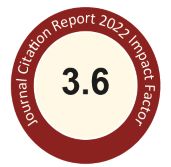Abstract
Nanoparticle-assisted laser desorption/ionization mass spectrometry (LDI-MS) is a powerful tool for the analysis of a wide range of molecules. Many of the drawbacks in the matrix-assisted laser desorption/ionization mass spectrometry (MALDI-MS) can be avoided with the application of nanomaterials as matrices as well as substrates for the LDI-MS to achieve a low background noise in low m/z region and high reproducibility. Surface-assisted LDI (SALDI)-MS, especially the nanoparticle-based LDI-MS, has emerged as a promising technique for the analysis of trace amounts of substances in various biological samples due to their high surface area for analyte enrichment, efficient desorption/ionization, and homogeneous crystallization of sample. Therefore, it is highly useful in clinical, forensic, medical, food and drug analyses, disease diagnosis, and various other fields. In this review, we briefly discuss the application of various nanomaterials, which include metal-based, carbon-based, silicon-based nanomaterials and nanocomposites, as matrices and substrates for LDI-MS based drug and metabolite analyses and possible detection strategies. Also, we discuss the idea of using “mass tag” for signal amplification for drug and metabolite detection using nanoparticle assisted LDI-MS. © 2018
ScienceDirect Link
Recommended Citation
Chu, H.-W.; Unnikrishnan, B.; Anand, A.; Mao, J.-Y.; and Huang, C.-C.
(2018)
"Nanoparticle-based laser desorption/ionization mass spectrometric analysis of drugs and metabolites,"
Journal of Food and Drug Analysis: Vol. 26
:
Iss.
4
, Article 2.
Available at: https://doi.org/10.1016/j.jfda.2018.07.001
Creative Commons License

This work is licensed under a Creative Commons Attribution-Noncommercial-No Derivative Works 4.0 License.
Fulltext URL
https://www.sciencedirect.com/science/article/pii/S1021949818301170/pdfft?md5=1ee03aa24ff55efb0a2fec2960645091&pid=1-s2.0-S1021949818301170-main.pdf
Included in
Food Science Commons, Medicinal Chemistry and Pharmaceutics Commons, Pharmacology Commons, Toxicology Commons


Abstract Image